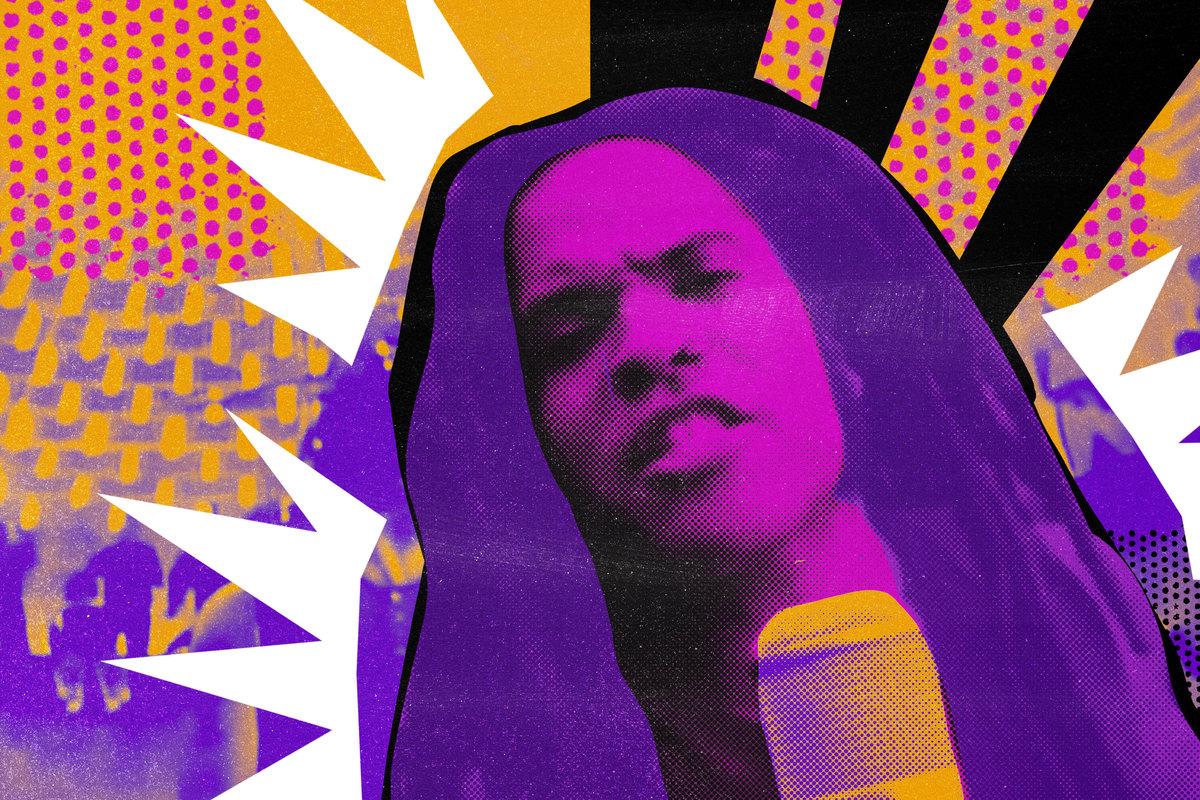
60 Songs That Explain the ’90s is back for its final stretch run (and a brand-new book!). Join The Ringer’s Rob Harvilla as he treks through the soundtrack of his youth, one song (and embarrassing anecdote) at a time. Follow and listen for free on Spotify. In Episode 112 of 60 Songs That Explain the ’90s—yep, you read that right—we’re covering Lenny Kravitz’s “Are You Gonna Go My Way?” Read an excerpt below.
Lenny was in the news recently. Esquire magazine did a giant feature on him in late November 2023, big fashion spread. Lenny is 59 years old. He looks fantastic. Lenny is still so hot it’s hurting my feelings. But Lenny’s also got some thoughts, some slightly and justifiably grouchy thoughts on the way he has historically been perceived and the different ways he’s been perceived by different audiences. He talks about the press he typically got in the ’90s. He says, “There was this one article that, at that time, said, ‘If Lenny Kravitz were white, he would be the next savior of rock ’n’ roll.’” He says, “I got a lot of negativity thrown at me by all these older white men who weren’t going to let me have that position.”
He talks about Jann Wenner, Rolling Stone cofounder and longtime dictator. He’s long gone from there, but in September Jann put out a book called The Masters for which he interviewed only white male rock stars, and then he did a disastrous New York Times interview with the great David Marchese where Jann said, “Insofar as the women, just none of them were as articulate enough on this intellectual level.” And also, “Of Black artists—you know, Stevie Wonder, genius, right? I suppose when you use a word as broad as ‘masters,’ the fault is using that word. Maybe Marvin Gaye, or Curtis Mayfield? I mean, they just didn’t articulate at that level.” I was afraid to paraphrase any of that. Disaster. Huge news cycle. Everyone was disgusted. Jann tried to apologize, but he still got kicked off the Rock and Roll Hall of Fame board or whatever. And so now Lenny, who’d spent a little leisure time with Jann back in the day, says, “The statement alone, even if you just heard about the man yesterday, was appalling and embarrassing. And just wrong.”
You know one of my favorite songs of all time, any genre, any era? Curtis Mayfield. 1970. “(Don’t Worry) If There Is a Hell Below, We’re All Gonna Go.” Fantastic use of parentheses; legitimately one of my absolute favorite songs of all time. Dig the bass groove, dude! Dig the dare-I-say articulation!
And if there’s hell below
We’re all gonna go
But Lenny Kravitz got the most attention, in this Esquire interview, for talking about other magazines. Other media. The article says, “Kravitz is more mystified, though, by how he’s been treated by Black entertainment and culture outlets. Take Vibe magazine, which featured a who’s who of Black artists in its pages when it began publishing in 1993, but waited almost a decade to put Kravitz on the cover. And it wasn’t just Vibe.” And then Lenny says, “To this day, I have not been invited to a BET thing or a Source Awards thing. And it’s like, here is a Black artist who has reintroduced many Black art forms, who has broken down barriers—just like those that came before me broke down. That is positive. And they don’t have anything to say about it?”
Finally, Lenny says that he doesn’t understand why he “is not celebrated by the folks who run those publications or organizations. I have been that dream and example of what a Black artist can do.” Do you mind, terribly, if, just for a minute, let’s all do the Bump. Bump bump bump. Yeah. Ugh. I’m sorry. It sounds better when he says it.
MC Hammer was in the news recently. That was “U Can’t Touch This,” from 1990, and I don’t have to tell you that. The whole point here is I don’t have to tell you that. So in November, Oakland renamed a street after Tupac, who’d of course started his rap career in Oakland as part of the Digital Underground. Oakland took part of MacArthur Boulevard and renamed it “Tupac Shakur Way,” and they have this ceremony, and a bunch of beloved Bay Area rappers speak at this ceremony, including E-40, Too Short, and Richey Rich Double R. But MC Hammer speaks too, and Hammer calls Tupac “hands down, the greatest rapper ever, there’s not even a question of that.” But Hammer actually goes kinda viral for saying other stuff:
But you ain’t never heard me talk about no stories on nobody’s platform. You ain’t heard me, uh, go to none of these hip-hop 50, and just for the record, I got invited to every one.
You may be aware that hip-hop turned 50 years old in 2023. It dates back to a party DJ Kool Herc and his sister threw in the Bronx in 1973, and thus we had 50 years of hip-hop celebrations all year, including a giant eras-spanning medley at the Grammys in February featuring Grandmaster Flash, Run-DMC, Salt-N-Pepa, LL Cool J, De La Soul, Missy Elliott, and on and on and on. Questlove from the Roots organized it and curated it. And Questlove said later, on Twitter, that MC Hammer turned him down, and Questlove was heartbroken. And here now we got Hammer explaining why he turned all this 50 years of hip-hop stuff down.
I can’t get with the fakeness of it all. Y’know what I’m sayin’? Like, I can do it with a young cat, but I can’t come around old cats, and still be pretendin’, “What you want me to call you?” “Six-Shooter.” Eh, Six-Shooter! Man, come on, man. Ain’t none of your bodies turned up yet!
And I’m disinclined to put too many additional words in Hammer’s mouth, but the reaction to his speech here, the comments, the Twitter chatter, whatever, is mostly people saying, “Good for him. Good for Hammer. Hip-hop is trying to honor him now, but it’s too late.” MC Hammer never got the respect he deserved from hip-hop because he was too pop, too wholesome, too successful, too real but the wrong kind of real. He refused to indulge the Call me Six-Shooter–type fakeness. And he took a lot of shit for it. The old A Tribe Called Quest line, Q-Tip’s famous line, “What you say, Hammer? Proper / Rap is not pop / If you call it that then stop.” I’m sorry. It sounds better when he says it. But it’s still rude. And OK, look, speaking for myself, as someone who owned, in 1990, as a 12-year-old, the MC Hammer album Please Hammer Don’t Hurt ’Em on cassette, that’s not a great album and MC Hammer is not one of the greatest rappers of all time. But nonetheless, Hammer is another dream, another example of what a Black artist can do, despite the stifling categorization of being a Black artist or a hip-hop artist.
Finally, you know who else politely declined all invitations to 50 years of hip-hop events? André 3000, of Outkast. André 3000 is in the news. He did a great giant feature in GQ magazine, written by friend of the program Zach Baron. They did laundry, that’s true, because André 3000—who is legitimately in the conversation as one of the greatest rappers of all time—finally put out a solo album in November. Twenty years or so we’ve been dying to hear an André 3000 solo album, or another one, depending on how you classify The Love Below, never mind that now. And finally, now we get a whole new album from André 3000, and it’s called New Blue Sun, and it sounds like this.
It’s a great melody, actually, but I can’t play you the whole thing and I feel bad about that. That’s superstar rapper André 3000 on flute, and that song is 12 minutes and 20 seconds long. And the title of this—and get comfortable for this—the title is “I swear, I Really Wanted To Make A ‘Rap’ Album But This Is Literally The Way The Wind Blew Me …” That’s the title of that song. Swear is the only word that’s not capitalized, and it bothers me. New Blue Sun is a whole album of superstar rapper André 3000 playing the flute, various flutes, and there is no rapping whatsoever because André will not submit to the stifling categorization of being a yeah, OK, all right, you get it. Here’s the way the wind was blowing Lenny Kravitz in 1989.
Lenny Kravitz was born in New York City in 1964 and raised primarily on the Upper East Side. It’s fine if you don’t care, personally, what neighborhood in New York City he grew up in specifically, but if you live there, it matters. His mother, Roxie Roker, was an actress who played Helen Willis on The Jeffersons. If you’re too young to know what The Jeffersons is, good for you. Lenny’s father, Sy Kravitz, was a TV producer and army veteran. A Green Beret, in fact. Young Lenny started banging on pots and pans when he was 3, decided he wanted to be a musician when he was 5, and went to see the Jackson 5 in concert when he was 7, and that’ll do it. When he was 10, the family moved to L.A. so his mom could be on The Jeffersons; he soon discovered rock ’n’ roll and marijuana. That’ll do it, also. Early attempts at becoming a rock star himself were discouraging. He wore blue eye contacts for a while and called himself Romeo Blue; per that Esquire interview, he was also apparently going to be the frontman for an all-Black version of Duran Duran. I’m relieved, of course, that he didn’t do that, but I would like to have heard that, honestly, if only for 30 seconds.
To hear the full episode, click here. Subscribe here and check back every Wednesday for new episodes. And to order Rob’s new book, Songs That Explain the ’90s, visit the Hachette Book Group website.


